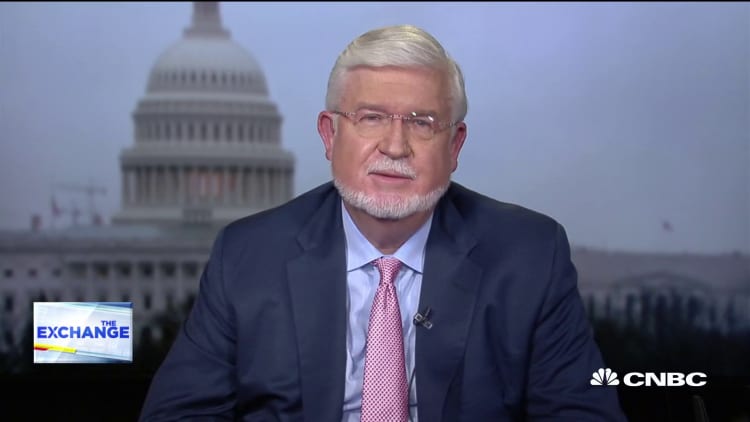Forgiving student loan debt would provide a modest bump to the economy but could risk "moral hazard" and eventually make the problem worse, according to Moody's Investors Service.
Some Democratic presidential candidates, including Sens. Bernie Sanders and Elizabeth Warren, have proposed wiping out a debt load that has exploded from $363 billion in 2005 to nearly $1.5 trillion now.
Sanders wants to make college free while Warren has proposed a billionaires' tax that she said would pay to eliminate up to $50,000 in education loans.

However, a Moody's analysis suggests that the benefits at a macro level would be fairly restrained.
"In the near term, we would expect student loan debt cancellation to yield a tax-cut-like stimulus to economic activity, contributing to a modest increase in household consumption and investment," William Foster, the firm's senior credit analyst, and others wrote in a report. "The magnitude of the stimulus would depend on the size of the debt relief and income level of the beneficiaries."
In dollar terms, Foster cited studies showing that canceling debt would add $86 billion to $108 billion a year to GDP over a 10-year period. Less aggressive measures to forgive some loans and restructure payments for others would amount to $120 billion over a decade.
In a $21.5 trillion U.S. economy, those kinds of gains won't move the needle very fair from a broad sense.
However, the issue of student debt and its role in growing wealth inequality is a popular one on the campaign trail and could bring fundamental change to the way higher education is financed in the U.S. The issue has a disproportionate impact on younger people and has led to a variety of legislative proposals to tackle the problem.
Further benefits would include more money freed up for household and small business formation.
Moody's cautioned, though, that the measures being discussed now could end up being counterproductive.
"Over the longer term, debt forgiveness could lead to an improvement in small business and household formation, as well as increased homeownership," Foster wrote. "However, it could also increase the risk of moral hazard and the accumulation of even higher student debt burdens."
Future borrowers, for instance, might be encouraged to run up big loan balances on the assumption that their debts will be forgiven at some point.
It's also unclear how much forgiveness would address wealth inequality. The New York Fed estimates that about two-thirds of outstanding debt is currently held by the upper-half of earners.



